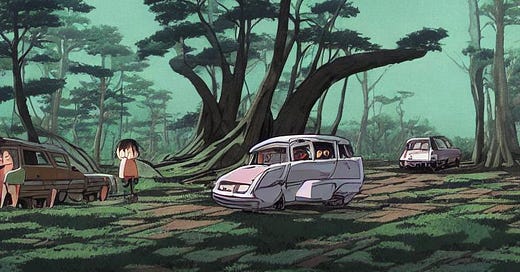Tagore's Mythical Forest
Tagore’s Bengal was both farm and forest. To this day, parts of Bengal are somewhat wild (the Sundarbans for example) but it was most certainly not a forest civilization by Tagore’s time. The Mughals oversaw a vast expansion of the agrarian regime in Bengal. Via Wikipedia:
The Mughals launched a vast economic development project in the Bengal delta which transformed its demographic makeup. The government cleared vast swathes of forest in the fertile Bhati region to expand farmland. It encouraged settlers, including farmers and jagirdars, to populate the delta. It assigned Sufis as the chieftains of villages. Emperor Akbar re-adapted the modern Bengali calendar to improve harvests and tax collection. The region became the largest grain producer in the subcontinent.
Bengal was the richest Mughal province and its largest granary. I can’t imagine during Tagore’s time ‘forest consciousness’ was the dominant mode of consciousness. In fact, I can’t imagine that being the case anywhere in India at any time in the second millennium CE. So how should we read a statement such as:
The wording gives us a clue: these sentences are written as if from a myth. Contrast those sentences with what follows immediately afterward:
The mythological register gives way to a historical one. ‘Once upon a time’ we lived in harmony but then came the great agrarian conquest. But - we can almost hear the poet in Tagore reciting these lines with reverence - the harmonious past was always present in our collective memory:
but even this memory is threatened by the empire of stone and metal:
and that empire kept on winning and winning even as its British avatar upped and left. I don’t think that forest civilization is anywhere in our minds these days, there’s no adoration of that simple life. Instead, we look for spaceships hiding in the Vedas.
That’s why Tagore is important. Thinking like a forest is not available to our historical consciousness. We have to become poets before we enter the jungle.









